




Denton ISD Benefits
Higginbotham Public Sector
833-933-5656
www.mybenefitshub.com/dentonisd dentonisd@hps.higginbotham.net
Phone: 940-369-0028
Email: benefits@dentonisd.org
Medical Coverage
Blue Cross Blue Shield of Texas
HMO Gold Group # 359485
HMO Platinum Group # 359482
HSA HDHP Group # 359458
800-521-2227
www.bcbstx.com
Telemedicine
Recuro Health
855-673-2876
www.recurohealth.com
PPO Dental Coverage
Blue Cross Blue Shield of Texas
Group # 369750
800-521-2227
www.bcbstx.com
DHMO Dental Coverage
Cigna
Group # 334096
800-754-3207 www.cigna.com
Vision Coverage
Blue Cross Blue Shield of Texas
Group # VF029182
800-512-2227 www.bcbstx.com
Health Savings Account
EECU 817-882-0800 www.eecu.org
Flexible Spending Accounts
Higginbotham 866-416-3519 www.higginbotham.com
Basic and Voluntary Life and AD&D
Blue Cross Blue Shield of Texas Group # VF029182 800-512-2227 www.bcbstx.com
Disability
The Hartford Group # G681062 800-523-2233 www.thehartford.com
Critical Illness Insurance
Lincoln Financial Group # 1040763
800-423-2765
www.lfg.com
Hospital Indemnity Insurance
Cigna Group # HC110440 800-754-3207 www.cigna.com
Accident Insurance
The Hartford 800-523-2233 www.thehartford.com
Emergency Transportation
MASA Group # B2BDenton 800-423-3226 www.masamts.com claims@masaglobal.com
Retirement Plans
PlanScope360 877-395-0456; press “0” info@planscope360.com www.planscope360.com/dentonisd
We are pleased to offer a full benefits package to you and your eligible dependents. Read this guide to know what benefits are available to you. You may only enroll for or make changes to your benefits during Open Enrollment or when you have a Qualifying Life Event.
Your plan offers medical coverage options. To help you make an informed choice, review each plan’s Summary of Benefits and Coverage (SBC) available by accessing www.mybenefitshub.com/dentonisd.
Your New Benefits Begin and End September 1, 2025 - August 31, 2026
If you (and/or your dependents) have Medicare or will become eligible for Medicare in the next 12 months, federal law gives you more choices for your prescription drug coverage. Please see page 36 for more details.














Ask your Benefits Department. Call Higginbotham Public Sector at 833-933-5656.
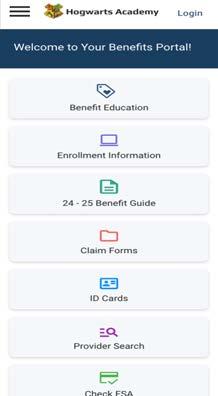



1. Go to www.mybenefitshub.com/dentonisd. Scan the QR code to the right.
2. Click Login.
3. Enter your information:
• Last name
• Date of birth

• Last four digits of your Social Security number
Note: THEbenefitsHUB uses this information to check behind the scenes to confirm your employment status.
4. Once confirmed, the Additional Security Verification page will list the contact options from your profile. Select either the Text, Email, Call, or Ask Admin options to receive a code to complete the final verification step.
5. Enter the code you receive and click Verify to begin your benefits enrollment.
Enrollment made easy with your smartphone or tablet.
Text BENEFITS to 214-831-4250 to opt into important text message* enrollment reminders. Scan the QR code to go to your benefit website for:
• Benefits resources
• Online enrollment
* Standard message rates may apply.
• Interactive tools
• And more!
6. Review your personal information and verify covered dependents. Contact your employer with any discrepancies.
7. Select and confirm the dependent(s) who are to be covered on each benefit screen (medical, dental, etc.). If a dependent is not selected for a benefit, it will not be provided. NOTE: Dependents cannot be double-covered by married spouses within the district as both employees and dependents.
What if I miss the enrollment deadline?
You may only enroll for or change your benefits during Open Enrollment or if you have a Qualifying Life Event.
Is there an age limit for dependents to be covered under my benefits?
You may cover dependents up to age 26 on most benefit plans, but there are exceptions. See the Eligibility section for more details.
Where do I find benefit summaries and forms?
Access www.mybenefitshub.com/dentonisd and click on the benefit plan you need (i.e., Dental). Forms and benefits information are under the Benefits and Form section.
How do I find an in-network provider?
Access www.mybenefitshub.com/dentonisd and click on the benefit plan for the provider you need to find. Click on the Quick Links section to find provider search links.
will
If the medical carrier provides ID cards and there is a plan change, new cards usually arrive within four weeks of your effective date. If there are no plan changes, a new card may not be issued.
You may not need a card for dental and vision plans. Simply give your provider the insurance company’s name and phone number to verify benefits. You can also print a temporary card by visiting the insurance company’s website.
Ask your Benefits Department. Call Higginbotham Public Sector at 833-933-5656
The following limitations and exclusions may apply when obtaining coverage as a married couple or for your dependents.
Can I cover my family — a spouse or a dependent — as dependents on my benefits if we work for the same employer?
Some benefits may not allow you to do this if you work for the same employer. Review the applicable plan documents, contact Higginbotham Public Sector, or contact the insurance carrier for spouse and dependent eligibility.
Are there FSA/HSA limitations
Yes, generally. Married couples may not enroll in both a Flexible Spending Account (FSA) and a Health Savings Account (HSA). If your spouse is covered under an FSA that reimburses for medical expenses then you and your spouse are not HSA-eligible – even if you would not use your spouse’s FSA to reimburse your expenses. However, there are some exceptions to the general limitation for specific types of FSAs. Contact the FSA and/or HSA provider before you enroll or reach out to your tax advisor for further guidance.
Disclaimer: You acknowledge that you have read the limitations and exclusions that may apply to obtaining spouse and dependent coverage, including limitations and exclusions that may apply to enrollment in Flexible Spending Accounts and a Health Savings Account as a married couple. You, the enrollee, shall hold harmless, defend, and indemnify Higginbotham Public Sector, LLC from any and all claims, actions, suits, charges, and judgments whatsoever that arise out of your enrollment in spouse and/or dependent coverage, including enrollment in an FSA and HSA.
You are eligible for coverage if you are a regular, full-time employee. You may only enroll for coverage when:
• You are a new hire
• It is Open Enrollment (OE)
• You have a Qualifying Life Event (QLE)
See page 5 for Important Exclusions and Limitations.
• A regular, full-time employee working an average of 20 hours per week
• Enroll by the deadline given by Human Resources
• First of the month following date of hire
You must be Actively at Work on the date your coverage becomes effective. Your coverage must be in effect for your spouse’s and eligible children’s coverage to take effect. See plan documents for specific details.
• A regular, full-time employee working an average of 20 hours per week
• Enroll during OE or when you have a QLE
• You must be actively at work on the plan effective date for new benefits to be effective
• QLE: Ask Benefits
• Your legal spouse
• Child(ren) under age 26, regardless of student, dependency, or marital status
• Child(ren) over age 26 who are fully dependent on you for support due to a mental or physical disability and who are indicated as such on your federal tax return
• You must enroll the dependent(s) during OE or when you have a QLE
• When covering dependents, you must enroll for and be on the same plans
• Dependents cannot be double-covered by married spouses within the district as both employees and dependents
• Based on OE or QLE effective dates




You may only change coverage during the plan year if you have a Qualifying Life Event, such as:
Marriage
Divorce
Legal separation
Annulment
Birth
Adoption
Placement for adoption
Change in benefits eligibility
Death
You have 30 days from the event to notify Human Resources and complete your changes. You may need to provide documents to verify the change.
Undergoing FMLA, COBRA event, court judgment, or decree
Becoming eligible for Medicare, Medicaid, or TRICARE
Receiving a Qualified Medical Child Support Order
Gain or loss of benefits coverage
Change in employment status affecting benefits
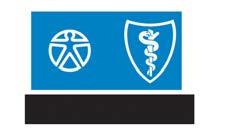
Denton ISD’s medical plans protect you and your family from major financial hardship in the event of illness or injury:
• High Deductible PPO – This PPO plan a has a $4,000 Individual and a $10,000 Family in-network deductible.
• Platinum HMO – This HMO plan a has a $3,200 Individual and a $6,400 Family in-network deductible.
• Gold HMO – This HMO plan a has a $3,800 Individual and a $12,000 Family in-network deductible.
A PPO allows you the freedom to see any provider when you need care. When you use in-network providers, you receive benefits at a discounted network cost. You may pay more for services if you use out-of-network providers. In-network office visits, urgent care, and prescription drugs are covered with a copay. Most other in-network services are covered at the coinsurance level.
An HDHP allows you the freedom to see any provider when you need care, but you will pay less if you use in-network providers. In exchange for a lower per-paycheck cost, you must satisfy a higher deductible that applies to almost all health care expenses, including those for prescription drugs. The plan pays 100% for health care and prescription drug expenses once you meet your deductible. If you enroll in the HDHP, you may be eligible to open a Health Savings Account.
Watch and learn more!
With an HMO, you must seek care from in-network providers in the HMO network. The selection of a primary care physician is required and you do need a referral to see a specialist. It is best to confirm that your doctor and all specialists are in-network before seeking care.


Denton ISD partners with Concentra to offer affordable and quality onsite health care to employees, spouses, and dependents, regardless of insurance status.
To ensure your spouse and children can schedule an appointment, please add them as dependents on the Benefits Portal by visiting www.mybenefitshub.com/dentonisd
I have medical insurance through Denton ISD that covers myself and/or my spouse and children.
Access to: Urgent Care Services Primary Care (PCP) Services In-Person & Virtual
HMO Gold & Platinum Plan Members: $0 per visit fee
High Deductible / PPO Plan Members: $10 per visit fee
Access to the MyChart App Schedule Appointments Manage Health Data, Appointments, Procedures, and Labs
Message your Doctor
I do not have medical insurance through Denton ISD.
Access to: Urgent Care Services Only In-Person & Virtual $30 per visit fee
Access to the MyChart App Schedule Appointments Manage Health Data and Appointments. Message your Doctor
Contact us today to schedule your appointment!
(940) 369-1380
1006 Fulton St. Denton, TX 76201
We can also treat you if you are injured at work!

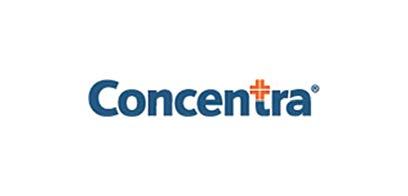

Jairaj (Jay) Sayani, MD, MBA, MS, FAAFP
Specialties
Family Medicine (Board Certified), Occupational Medicine
Years in practice: 19

Toni G. Perkins, MS, APRN, FNP-C
Specialty
Board certified family nurse practitioner
Years in practice: 9
• Residency: West Penn Allegheny Health System, Forbes Regional Campus – Pittsburgh, PA
• Executive MBA: University of Texas at Dallas
• Masters in Exercise Physiology: Eastern Michigan University
Experience
Dr Sayani gathers extensive experience as a physician from residency days working with challenging cases in a diverse setting in Pennsylvania to underserved area in Ohio where he saw patients in the clinic and the hospital of all ages (newborn to older adults), before moving to Texas.
He worked as a hospitalist with Baylor before starting his role as a Medical Director with Concentra and has been with them for 11 years, last 2 years of which are at the Denton ISD onsite clinic.
Being involved as subject medical expert for regulatory testing and exams with Concentra, while gaining further knowledge in various medical disciplines and certification in occupational medicine, Dr Sayani continues to apply his knowledge to care for patients in several ways.
Dr Sayani is very passionate about his patients’ well being and believes in holistic approach towards their problems.
Outside of his work with Denton ISD…
He is married to his wife (teacher) for 25 years, blessed with 2 daughters and a dog, living in Flower Mound. He enjoys board games, playing racket games, rendering art, playing music and engages with local community in different ways.
• Masters (Nurse Practitioner): Texas Woman’s University
• Nursing Bachelor’s degree (Registered Nurse): Texas Woman’s University
Toni after graduating with her LVN license began her nursing career at Brooke Army Medical Center Ft. Sam Houston where she was assigned to Level I Trauma Center. She then started teaching as a Professor for North Central Texas College Vocational Nursing Department to educate and mentor future Nurses.
Toni continued to pursue further education in bachelor’s degree for nursing and then master’s for Nurse Practitioner in December 2016.
She gathered varied experience with patients of all ages while working in functional medicine, primary care, and gastroenterology before starting with Concentra at Denton ISD onsite clinic for the last year.
Toni believes in developing positive relationships with her patients, provide patient-centered care, and assisting them with their wellness goals. She wishes to empower, motivate, and educate her patients to optimize their health with a holistic approach.
Outside of her work with Denton ISD…
Toni is a native Texan and lives in Sanger with her husband Jonathan and their four children: Blake, Zack, Brooke, and Kash, while enjoying her time with her 6 dogs. When not in Sanger, you may find her in Disney!

Disability insurance provides partial income protection if you are unable to work due to a covered accident or illness. We offer Short Term Disability (STD) and Long Term Disability (LTD) insurance for you to purchase.
Educator Disability insurance combines features of short-term and long-term disability into one plan. Disability insurance protects part of your income if you are unable to work due to a covered accident, illness, or pregnancy. We offer Educator Disability insurance for you to purchase and allow you to choose the coverage amount and waiting period that best suits your needs.
is
Disability insurance protects one of your most valuable assets: your paycheck. This insurance replaces part of your income if you are physically unable to work due to sickness or injury for an extended period of time. The educator disability plan is unique in that it includes both short- and long-term coverage in one convenient plan.
Does this plan have pre-existing condition limitations?
Yes. However, all plans will include pre-existing condition limitations that could impact you if you are a first-time enrollee in your employer’s disability plan (including your initial new hire enrollment). Review the plan documents for full details.
3
2
1
Your disability benefit may be reduced by other income you receive or are eligible to receive due to your disability, such as:
• Social Security disability insurance
• State teacher retirement disability plans
• Workers’ compensation
• Other employer-based disability insurance coverage you may have
• Unemployment benefits
•
your
or partially pays for (such as a pension plan)
Your disability plan selection should be a two-step approach.
Choose your elimination period, or waiting period. This is how long you are disabled and unable to work before your benefit will begin. It will be displayed as two numbers, such as 0/7, 14/14, 60/60, etc.
The first number indicates the number of days you must be disabled due to Injury and the second number indicates the number of days you must be disabled due to Sickness
When choosing your elimination period, determine how long you could go without a paycheck. Choose your elimination period based on your answer.
Note: Some plans will waive the elimination period if you choose 30/30 or less and you are confined as an inpatient to the hospital for a specific time period. Review your plan details to see if this feature is available to you.
Gold benefit option – the table below applies to disabilities resulting from sickness or injury
Silver benefit option – the table below applies to disabilities resulting from injury.

Choose your benefit amount. This is the maximum amount of money you would get from the carrier on a monthly basis once your disability claim is approved by the carrier.
When choosing your monthly benefit, consider how much money you need to pay your monthly bills. Choose your monthly benefit amount based on your answer.
Visit
Silver benefit option – the table below


A Health Savings Account (HSA) is a tax-exempt tool to supplement your retirement savings and to cover current and future health costs.
An HSA is a type of personal savings account that is always yours even if you change health plans or jobs. The money in your HSA (including interest and investment earnings) grows tax-free and spends tax-free if used to pay for current or future qualified medical expenses. There is no “use it or lose it” rule — you do not lose your money if you do not spend it in the calendar year — and there are no vesting requirements or forfeiture provisions. The account automatically rolls over year after year.
You are eligible to open and contribute to an HSA if you are:
• Enrolled in an HSA-eligible HDHP
• Not covered by another plan that is not a qualified HDHP, such as your spouse’s health plan
• Not enrolled in a Health Care Flexible Spending Account
• Not eligible to be claimed as a dependent on someone else’s tax return
• Not enrolled in Medicare, Medicaid, or TRICARE
• Not receiving Veterans Administration benefits

Having an HSA is a smart financial move!
$4,300 Individual
$8,550 Family
If you are age 55 or older, you can contribute an extra $1,000.
Use it Now
• Make annual HSA contributions.
• Pay for eligible medical costs.
• Keep HSA funds in cash. Let it Grow
• Make annual HSA contributions.
• Pay for medical costs with other funds.
• Invest HSA funds.
• Have your doctor file your claims and use your HSA debit card to pay any balance due.
• Keep ALL your records and receipts for HSA reimbursements in case of an IRS audit.
• Only HSA accounts opened through our plan administrator are eligible for automatic payroll deductions.
Visit https://www.eecu.org or download the mobile app to find a local financial center, check your balance, pay bills, and more.
Call/Text 817-882-0800 for EECU member service. Call 800-333-9934 for lost or stolen cards.

HSA contributions are tax-deductible and grow tax-deferred.
Withdrawals for qualifying medical expenses are tax-free.

A Flexible Spending Account (FSA) allows you to set aside pretax dollars from each paycheck to pay for certain IRS-approved health and dependent care expenses.
The Health Care FSA covers qualified medical, dental, and vision expenses for you or your eligible dependents. Eligible expenses include:
• Dental and vision expenses
• Medical deductibles and coinsurance
• Prescription copays
• Hearing aids and batteries
You may not contribute to a Health Care FSA if you enrolled in a High Deductible Health Plan (HDHP) and contribute to a Health Savings Account (HSA).
The Dependent Care FSA helps pay for expenses associated with caring for elder or child dependents so you or your spouse can work or attend school full-time. You can use the account to pay for daycare or babysitter expenses for your children under age 13 and qualifying older dependents, such as dependent parents. Reimbursement from your Dependent Care FSA is limited to the total amount deposited in your account at that time. To be eligible, you (and your spouse, if married) must be gainfully employed, looking for work, a full-time student, or incapable of self-care.
• Overnight camps are not eligible for reimbursement (only day camps can be considered).
• If your child turns 13 midyear, you may only request reimbursement for the part of the year when the child is under age 13.
• You may request reimbursement for care of a spouse or dependent of any age who spends at least eight hours a day in your home and is mentally or physically incapable of selfcare.
• The dependent care provider cannot be your child under age 19 or anyone claimed as a dependent on your income taxes.
You can access the funds in your FSA two different ways:
• Use your Higginbotham Benefits Debit Card to pay for qualified expenses, doctor visits, and prescription copays.
• Pay out-of-pocket and submit your receipts for reimbursement:
• Call – 866-419-3519
• Fax – 866-419-3516
• Email – flexclaims@higginbotham.net
• Online – https://flexservices.higginbotham.net

$5,000 if filing jointly or head of household and $2,500 if married filing separately.
You are entitled to the full election from day one of the plan year.
The Higginbotham Portal provides information and resources to help you manage your FSAs to:
• Access plan documents and account information.
• Update your personal information.
• Look up qualified expenses.
• Submit claims.
Visit https://flexservices.higginbotham.net click Get Started and follow the instructions.
• Enter your Social Security number with no dashes or spaces as your Employee ID.
• Follow the prompts to navigate the site.
• If you have any questions or concerns, contact Higginbotham:
• Call 866-419-3519
• Visit https://flexservices.higginbotham.net
• Email flexclaims@higginbotham.net .
• Fax 866-419-3516
Download the Higginbotham app to easily access your Health Care FSA information.
• View your account balance
• View debit card activity
• File a claim and upload receipts
• Set up notifications
Register on the Higginbotham Portal first to access the mobile app, and use the same username and password for both.
The Higginbotham Health Care FSA debit card gives you immediate access to your Health Care FSA funds. You do not need to file a claim when you make a purchase with your debit card. You can only use this debit card for qualified health care expenses. If you use the debit card to pay for anything other than a copay amount, you must submit an itemized receipt or an Explanation of Benefits (EOB). If you do not submit a receipt, you will be asked to do so. You have 60 days to submit a receipt before your debit card is suspended.
Knowing the difference between a Health Savings Account (HSA) and Flexible Spending Account (FSA) can help you choose the best option for you and your family.
Internal Revenue Code
Description
Employer Eligibility
An HSA is an actual bank account in your name that allow you to save and pay for unreimbursed qualified medical expenses tax-free.
An FSA allows you to pay out-of-pocket expenses tax-free for:
• copays, deductibles, and certain services not covered by medical plan
• qualifying dependent care
A qualified High Deductible Health Plan All employers
Contribution Source You and/or your employer You and/or your employer
Underlying Insurance Requirement High Deductible Health Plan None
$1,650 single
• $3,300 family N/A
Maximum Contribution 2025
• $4,300 single
• $8,500 family
• $1,000 age 55+ catch-up
Permissible Use of Funds
Cash-Outs of Unused Amounts (if no medical expenses)
Year-to-year rollover of account balance?
Use any way you wish. If used for nonqualified medical expenses, funds are subject to the current tax rate plus a 20% penalty.
$3,300
Reimbursement for qualified medical expenses as defined in Section 213(d) of the Internal Revenue Code.
Permitted, but subject to current tax rate plus 20% penalty (waived after age 65). Not permitted
Yes, it will roll over to use for subsequent year’s health coverage.
No. Your employer’s plan contains a 30-day grace period.
Does the account earn interest? Yes No
Portable?
Yes, it is portable year-to-year and between jobs. No
The products and services listed below are examples of medical expenses eligible for payment under your Health Care FSA or HSA. This list is not all-inclusive; additional expenses may qualify, and the items listed are subject to change in accordance with IRS regulations. Please refer to IRS Publication 502 Medical and Dental Expenses at www.irs.gov for a complete description of eligible medical and dental expenses.
Abdominal supports
Acupuncture
Ambulance
Anesthetist
Arch supports
Artificial limbs
Blood tests
Braces
Cardiographs
Chiropractor
Crutches
Dental treatment
Dentures
Dermatologist
Diagnostic fees
Eyeglasses
Gynecologist
Healing services
Hearing aids and batteries
Hospital bills
Insulin treatment
Lab tests
Metabolism tests
Neurologist
Nursing
Obstetrician
Operating room costs
Ophthalmologist/Optician/Optometrist
Orthopedic shoes
Orthopedist
Osteopath
Physician
Postnatal treatments
Prenatal care
Prescription medicines
Psychiatrist
Therapy equipment
Wheelchair X-rays

The telemedicine and behavioral health plan offered through Recuro Health provides 24/7 virtual access to board-certified physicians for acute care needs, accessible via phone, web, or desktop.
This service allows patients to receive personalized treatment plans and follow-up consultations at no additional cost.
The plan includes comprehensive services such as therapy, counseling, psychiatry, and medication management, all delivered virtually.
A key feature is the use of pharmacogenetic (PGx) testing to ensure the most effective behavioral health medications are prescribed from the outset. Additionally, primary care and behavioral health providers collaborate to create coordinated treatment plans, offering a holistic approach to patient care.

Registration is Easy Register today so you are ready to use this valuable service when and where you need it.
Visit recurohealth.com Call 855-673-2876. Download the app to your mobile device.
Watch and learn more!

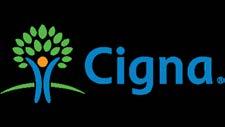

Denton ISD dental plans help you maintain good oral health through affordable options for preventive care, including regular checkups and other dental work.
If you enroll in the Dental Health Maintenance Organization plan, you must select a Primary Care Dentist (PCD) from the DHMO network directory to manage your care. Each eligible dependent may choose their own PCD. Dental services are unlimited, you pay fixed copays, there are no deductibles, and there are no claim forms to file. There is no coverage for services provided without a referral from your PCD or if you seek care from out-of-network providers.
There are two levels of benefits available with the Dental Preferred Provider Organization plan: in-network and outof-network. You may select any dental provider for care, but you will pay less and get the highest level of benefits with in-network providers. You could pay more if you use an out-ofnetwork provider.



Diagnostic Services*
Periodic oral evaluations, Problem focused oral evaluations, Comprehensive oral evaluations
$5.00 per Office Visit All relevant codes (D0120, D0140, D0150, D0180) are covered at no charge. Preventive Services* Prophylaxis (cleanings), Topical
Diagnostic Radiographs*
Full-mouth and panoramic films, Bitewing films
Periapical films
Non-Surgical Extractions
Periodontal scaling and root planning, Full-mouth debridement, Periodontal maintenance procedures
Adjunctive Services
Endontics Services
Therapeutic pulpotomy and pulpal debridement Root canal therapy, Apexification/recalcification
Oral Surgery Services
Surgical tooth extraction, Alceoloplasty and vestibuloplasty, Excision of benign odontogenic tumor/cyst, Excision of bone tissue, Incision and drainage of an intraoral abscess, (Bony impactions typically covered under medical plan)
Surgical Periodontal Services
Gingivectomy or gingiboplasty and gingival flap procedures, Clinical crown lengthening, Osseous surgery, Osseous grafts, Soft tissue grafts/allografts
Distal or proximal wedge procedure
Major Restorative Services
Single crown restoration, Inlay/onlay restorations, Labial veneer restoration, Crowns placed over the implants
Prosthodontic Services
Complete and removable partial dentures, Denture reline/ rebase procedures, Fixed Bridgework, Prosthetics placed over implants
Miscellaneous Restorative and Prosthodontic Services
Prefabricated crowns, Recememntations, Post and core, pin retention and crown/bridge repairs, Adjustments
– $50.00
(D1110, D1120): $0.00
cleanings: $40.00–$50.00
(D1206, D1208): $0.00
fluoride applications: $15.00
$5.00 per Office Visit All radiographs (D0210, D0330, D027x, D0220) are covered at no charge.
– $40.00
$7.00–$11.00
$30.00–$40.00
– $95.00 Amalgams: $0.00 Resin-based composites (posterior): $65.00–$95.00
– $45.00
(D4341/4342): $35.00–$45.00
(D9223, D9243): $80.00 per 15 minutes
– $310.00
$90.00 (anterior) to $275.00 (molar)
$75.00–$85.00
$5.00 – $125.00 Basic surgical extractions: $6.00–$125.00
Tumor/cyst removal: $0.00
$75.00 – $420.00
Gingivectomy: $90.00–$145.00
Osseous surgery: $250.00–$325.00
Grafts: $75.00–$420.00
$195.00 – $255.00
$205.00–$255.00 Veneers: $250.00
Inlays/onlays: $205.00–$220.00
$5.00 – $120.00 Prefab crowns: $30.00–$120.00 Post/core: $35.00–$55.00 Adjustments/repairs: $0.00–$40.00
and
$0.00–$125.00 * Deductible does not apply. Passive PPO’s provide identical benefits for ‘contracting’ and ‘non-contracting’ providers.

Denton ISD’s vision plans provide quality care to help preserve your health and eyesight. Regular exams can detect certain medical issues such as diabetes and high cholesterol, in addition to vision and eye problems. You may seek care from any vision provider, but the plan
Any
Standard Lenses
Once every 12 months
• Single vision
• Bifocal
• Trifocal
• Lenticular
• Standard progressive lens
Lenses
Once every 12 months
• Ultraviolet coating
• Tint (solid and gradient)
• Scratch resistant coating
• Polycarbonate lenses – adults
• Polycarbonate lenses – kids under 19
• Polarized lenses
• Photochromic/transitions plastic
Contacts
In lieu of frames and lenses
Once every 12 months
• Conventional
• Disposable
• Medically necessary
copay, $150 allowance, 15% off balance over $150
copay, $150
Becoming familiar with your options for medical care can save you time and money.
Non-Emergency Care
Generally, the best place for routine preventive care; established relationship; able to treat based on medical history
DOCTOR’S OFFICE
Office hours vary
Usually lower out-of-pocket cost than urgent care; when you can’t see your doctor; located in stores and pharmacies
Hours vary based on store hours
When you need immediate attention; walk-in basis is usually accepted
URGENT CARE
HOSPITAL ER
Generally includes evening, weekend and holiday hours
• Infections
• Sore and strep throat
• Vaccinations
• Minor injuries/sprains/ strains
• Common infections
• Minor injuries
• Pregnancy tests
• Vaccinations
• Sprains and strains
• Minor broken bones
• Small cuts that may require stitches
• Minor burns and infections
Life-threatening or critical conditions; trauma treatment; multiple bills for doctor and facility
24 hours a day, 7 days a week
Services do not include trauma care; can look similar to an urgent care center, but medical bills may be 10 times higher
24 hours a day, 7 days a week
• Chest pain
• Difficulty breathing
• Severe bleeding
• Blurred or sudden loss of vision
• Major broken bones
• Most major injuries except trauma
• Severe pain
Minimal
Note: Examples of symptoms are not inclusive of all health issues. Wait times described are only estimates. This information is not intended as medical advice. If you have questions, please call the phone number on the back of your medical ID card.

Life and Accidental Death and Dismemberment (AD&D) insurance is important to your financial security, especially if others depend on you for support or vice versa.
With Life insurance, you or your beneficiary(ies) can use the coverage to pay off debts such as credit cards, loans, and bills. AD&D coverage provides specific benefits if an accident causes bodily harm or loss (e.g., the loss of a hand, foot, or eye). If death occurs from an accident, 100% of the AD&D benefit would be paid to you or your beneficiary(ies).
Basic Term Life and AD&D insurance are provided at no cost to you. You are automatically covered at $15,000 for each benefit.
A beneficiary is the person or entity you elect to receive the death benefits of your Life and AD&D insurance policies. You can name more than one beneficiary, and you can change beneficiaries at anytime. If you name more than one beneficiary, you must identify how much each beneficiary will receive (e.g., 50% or 25%).

Life and Accidental Death and Dismemberment (AD&D) insurance is important to your financial security, especially if others depend on you for support or vice versa. With Life insurance, you or your beneficiary(ies) can use the coverage to pay off debts such as credit cards, loans, and bills. AD&D coverage provides specific benefits if an accident causes bodily harm or loss (e.g., the loss of a hand, foot, or eye). If death occurs from an accident, 100% of the AD&D benefit would be paid to you or your beneficiary(ies).
• Portable – keep your supplemental coverage if you leave your current employer
• Convertible – convert your group term life insurance benefits to an individual whole life policy if your coverage ends
• Accelerated Benefits Option – get up to 80% of your life insurance benefit if you (or your spouse) are terminally ill and have less than 24 months to live. Note: this benefit is not the same as long term care insurance.
Some limitations and exclusions apply, so see the plan documents for details.


Accident insurance provides affordable protection against a sudden, unforeseen accident. This benefit helps offset the direct and indirect expenses resulting from an accident such as copayments, deductible, ambulance, physical therapy, childcare, rent, and other costs not covered by traditional health plans. See the plan document for full details.
Ground / Air Ambulance
Emergency Room Benefit
Urgent Care Benefit
X-Ray Benefit
Major Diagnostic Exam
Hospital Admission
Hospital Intensive Care Admission
Daily Hospital Confinement Benefit
Daily Hospital Intensive Care Confinement Benefit
Physician Follow-Up Benefit / Max Visits (1 per accident)
Fingers & Toes
Arm (elbow to wrist)
Ankle
Hand
Kneecap
Collarbone
Arm (Shoulder to Elbow)
Leg (Knee to Ankle)
Hip
Leg (Hip to Knee)
Fingers & Toes
Ability Assist® with Health ChampionSM
• Provides emotional, financial, or legal help to employees with common work, home, personal or family concerns.
• Available 24/7 via a dedicated toll-free number for eligible employees and their family members enrolled in our Accident coverage[s].
• Includes a total of three face-to-face sessions for each emotional concern per year and unlimited telephone access for work/life, financial, legal, and healthcare support services.
• Interactive password protected web services
• Multi-lingual capabilities
• Health Champion offers unlimited access to benefit specialists and nurses for medical care and claim-related support. Services include claim and billing support, explanation of benefits, cost estimates/fee negotiation, health condition information and available treatments, support to help prepare for medical visits
• No cost services provided through The Hartford by ComPsych®
Concussion
2nd degree burns
Dental Injury
Lacerations
The Hospital Indemnity plan helps you with the high cost of medical care by paying you a cash benefit when you have an inpatient hospital stay. Unlike traditional insurance which pays a benefit to the hospital or doctor, this plan pays you directly. It is up to you how you want to use the cash benefit. These costs may include meals, travel, childcare or eldercare, deductibles, coinsurance, medication, or time away from work. See the plan document for full details.



Both the Platinum and Emergent Plus plans are designed to provide comprehensive emergency medical transportation coverage without requiring a provider network. The Platinum plan offers extensive coverage for emergency ground and air ambulance services throughout the U.S. and Canada, while Emergent Plus provides emergency ground ambulance coverage and up to $20,000 for air ambulance transport. Platinum also covers hospital-to-hospital transfers by ground or air when specialty care is needed at a different facility, with no specific limit stated. Emergent Plus similarly covers hospital-to-hospital transfers, including up to $20,000 for air transport. The Platinum plan includes additional benefits such as minor return transportation to reunite an unattended child with you. Pet return transportation is also included under Platinum, ensuring your animal companion is cared for if left behind due to your emergency.
In the event of a worldwide emergency requiring discharge and commercial travel home over 100 miles away, Platinum coordinates and pays for your return flight. Platinum further includes repatriation near home, hospital visitor transport for a support companion, and mortal remains transportation if needed. It even covers vehicle or RV return, organ retrieval transport, and organ recipient transport for transplants within the U.S. Emergent Plus offers solid core emergency transport protections but does not include these additional ancillary benefits. Both plans include expert coordination services to help manage post-emergency care logistics. Platinum’s broader coverage means you gain financial protection not just for yourself, but also your minor dependents and pets. Emergent Plus is a more streamlined option focused on covering immediate emergency transport needs up to predefined benefit limits. Neither plan requires use of a provider network—simply submit your bill and MASA handles claim resolution and reimbursement. While both plans vary by premiums, coverage levels, and availability, your member services agreement will provide full details on terms, conditions, and exclusions.

The Critical Illness Insurance plan through Denton ISD provides a financial safety net by offering lump-sum cash benefits when you or a covered family member is diagnosed with a qualifying critical illness or condition. Coverage is available for employees, spouses, and dependent children in various guaranteed amounts, with no medical questions during initial enrollment. This plan covers serious conditions such as heart attacks, cancer, strokes, major organ failure, and other advanced diseases, with most paying out 100% of the selected benefit.
Benefits are paid in addition to any existing health insurance and can be used however you choose. You also receive a $50 wellness benefit annually for completing a covered exam or screening. Premiums are deducted from your paycheck, and the plan includes additional features such as portability, waiver of premium, and access to Health Advocate services. Exclusions apply, so be sure to review the policy for full details before enrolling.

Full Coverage
Heart attack, Sudden cardiac arrest resulting in death, Stroke, Invasive Cancer, End Stage Renal (kidney) Failure, Major organ failure (heart, lung, liver, pancreas, or intestine), Arterial/vascular disease, Mitral or aortic valve disease, Advanced Huntington’s disease, Advanced COPD, AIDS, Advanced ALS/Lou Gehrig’s disease, Advanced Alzheimer’s disease, Advanced Parkinson’s disease, Advanced multiple sclerosis, Benign brain tumor, Loss of sight, hearing and/or speech
Childhood Diseases
Cerebral palsy, cleft lip/palate, cystic fibrosis, Type 1 diabetes, Down Syndrome, spina bifida
Denton is proud to partner with PlanScope360 as the third-party administrator (TPA) for the RISE Savings 457 and 403(b) retirement plans. Our combined mission is to make your retirement planning journey simple, transparent, and rewarding. As a trusted partner, PlanScope360 provides the tools, resources, and support you need to achieve your financial goals with confidence.
Teacher's Pension will provide education and enrollment support. Book an Appointment
Click Here for Instructions on how to access your new retirement account.
Click Here to view available 403(b) providers and to access your account!
Contact the Benefits Team at 940-369-0028 or benefits@dentonisd.org if you have questions or need assistance.
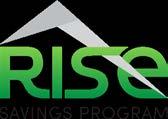


The Denton ISD Sick Leave Bank is a benefit that provides additional local leave days to employees and their immediate family member(s) who are experiencing an extended, catastrophic, incapacitating, personal illness or injury that forces them to exhaust all accumulated paid leave and to lose compensation from the District.
The DISD Sick Leave Bank is a collective deposit of local leave days contributed by enrolled employees and subsequent contributions from members. All days deposited into the bank become the property of the bank and are no longer available for use by the individual employee as accrued leave. The bank may be used by the individual member for his or her own qualifying condition and for that of an immediate family member, if the member donated the required amount of local leave days.
A catastrophic illness or injury is a severe condition or combination of conditions affecting the mental or physical health of the employee or a member of the employee’s immediate family that requires the services of a licensed practitioner for a prolonged period of time and that forces the employee to exhaust all leave time earned by that employee and to lose compensation from the District. Such conditions typically require prolonged hospitalization or recovery or are expected to result in disability or death. Conditions relating to pregnancy or childbirth shall be considered catastrophic if they meet the requirements of this paragraph.
This definition complies with the Internal Revenue Service (IRS) service requirements. Routine or noncatastrophic illnesses or injuries, general pregnancy, and disabilities which qualify the member for Workers’ Compensation income benefits are excluded from the awardment of Sick Leave Bank days.
For the purposes of the Sick Leave Bank, “immediate family” is defined and aligned with the interpretation from the Department of Labor.
• Spouse
• Child under the age 18, including biological, adopted, or foster child, a stepchild, a legal ward, or a child for whom the employee stands in loco parentis. Children over the age of 18 must have a qualifying disability.
• Parent or other individual who stands in loco parentis to the employee.

Purpose And Definitions:
• Eligible employees have the opportunity to enroll in the Sick Leave Bank. New personnel must enroll in membership during their New Hire Open Enrollment period for benefits and within thirty-one (31) calendar days of starting employment.
• Existing employees will be extended the opportunity annually to join the Sick Leave Bank during the District’s Annual Open Enrollment period.
• Enrollment in the bank is voluntary but requires a one-time donation of two (2) local leave days. An additional local leave day (1) may be donated for usage of the employee’s immediate family as defined above.
Membership is voluntary and open to full and part-time regular employees. For purposes of the bank, “regular employees” are defined as an employee who is in an allocated budgetary position (FTE) guaranteeing 20 hours or more per week. Seasonal, substitute, or temporary positions are not eligible for membership in the bank.
Participation in the Sick Leave Bank is voluntary but requires a one-time donation of two (2) local sick leave days. A third day may be donated for usage of the employee’s immediate family as defined above.
To request days from the Sick Leave Bank, an employee must exhaust all paid leave, including local leave, state leave, accrued compensatory time, and vacation leave. The employee must be unable to perform the duties of their position and be on an approved federal or state leave of absence.
• The maximum number of Sick Leave Bank days that may be granted to a member of the Sick Leave Bank is 25 days per school calendar year (July 1 through June 30).
• The lifetime maximum number of Sick Leave Bank days that may be granted to an employee is 75 days.
For purposes of the Sick Leave Bank, the school year will be from July 1 through June 30. The days donated become the property of the DISD Sick Leave Bank. Donations will remain in force and cannot be returned for any reason to the employee.
Membership in the Bank will continue for the duration of employment. Separation of the employee from DISD terminates membership in the Sick Leave Bank.
Should the Bank be in danger of depletion and falls two times (2x) below the number of participating members, then all members must contribute one (1) extra day effective July 1 of the next fiscal year. If it falls one (1x) below the number of members, then the employee must contribute two (2) days the next fiscal year.
The member may cancel membership at any time by using the proper form obtained from the Director of Benefits. The employee will not be eligible to use the Sick Leave Bank, as of the effective date, as indicated on the signature line of the withdrawal form. The employee may not regain donated leave days upon cancellation of membership. If the employee decides to rejoin the Bank, the employee must do so during an open enrollment period and again donate two (2) or three (3) leave days, as applicable.
A member of the Sick Leave Bank is not eligible to use benefits of the Bank under the following conditions:
• Termination of employment with Denton ISD.
• While being suspended without pay. Eligibility will also be terminated during suspension period.
• A member’s voluntary cancellation of Sick Leave Bank membership.
• Any abuse or misuse of the rules of the Sick Leave Bank.
• While on a non-medical leave of absence.
• Death.
If the bank is depleted of leave without sufficient membership to sustain it, all membership and benefits will end. Leave deposited will be forfeited by the members.

The Denton ISD Sick Leave Bank committee through a majority vote will render a determination on all requests for the Sick Leave Bank. The Sick Leave Bank committee will determine the number of days approved, up to 25, and reserves the right to approve, reject, or modify the days requested.
In an effort to maintain confidentiality and consistent determinations, the governing committee is comprised of employees from the following positions: Director of Benefits;
Executive Director of Human Resources; Director of Human Resources-Auxiliary, Director of Health Services; and
The Officers of the Teacher Communication Committee (TCC)
The Director of Benefits will communicate to the member whether the application was approved or not. The member will be notified if additional information is needed to make a decision.
Vacancies that occur on the committee during the school year will be filled by appointment by the Director of Benefits
The Director of Benefits shall serve as the bank administrator and advisor to the Sick Leave Bank Committee.
Decisions made by the committee may be appealed. The Level One Appeal must be filed with the District’s General Counsel, and the Level Two Appeal with the Superintendent.
Sick Leave Bank days can be requested by the member or the member’s designee after the member has exhausted all paid leave, including accrued compensatory time and vacation leave.
The member must be on a medical leave of absence under the Family and Medical Leave Act (FMLA) or Temporary Disability Leave (TDL). Sick leave days from the Bank may not be granted for a period of disability when monies are paid to the member under the Texas Workers’ Compensation Act.
The member must submit an application and physician’s statement to the Director of Benefits. All information related to the employees’ medical conditions are considered confidential and will be maintained as such.
The medical certification or health care provider’s statement must include:
• Diagnosis and the nature of the illness or injury.
• Date of onset of the disabling illness or injury.
• Confirmation from the physician that the illness or injury is catastrophic in nature as defined by this policy. This information includes but is not limited to, the type of treatment required, the duration of treatment, and the limits of the patient’s activity.
• Dates of hospitalization (if applicable).
• Dates of incapacity and inability to work.
• Anticipated date eligible to return to work full-time.
Elective absences, elective surgical or medical procedures, or procedures that could be scheduled without detriment to the member’s health do not qualify for Sick Leave Bank Days.
Routine pregnancy is not categorized as a catastrophic illness or injury; however, serious complications arising from pregnancy or childbirth may be considered. These include but are not limited to, complications requiring a prolonged hospitalization and represent an increased risk to the life or function of a covered pregnant employee and/or the unborn infant.
Labor and Delivery are not considered an emergency admission even though it may be an urgent admission. Delivery of a pregnancy by cesarean section, does not itself qualify a member for bank benefits. Additionally, the period needed to recover from childbirth is not eligible for bank benefits.
Mental disability that is not considered a “serious mental illness” as defined by Texas law.
Disabilities that qualify the member for Workers’ Compensation income benefits.
Sick leave days from the Bank must be approved by the District’s Sick Leave Bank Committee. A member will only be reimbursed for the amount of days actually docked. In no case will the granting of sick leave days from the Bank cause a member to receive more than his/her salary.
Bank days will only be granted for absences from the member’s scheduled work days. Holidays, vacation days, or other such days are not eligible for pay.

Days from the bank will not be granted for a period of disability when monies are available to the member under the Workers’ Compensation Act.
Reimbursement will be made in the member’s regular payroll check.
All unused sick leave days awarded by the Bank at the end of the fiscal year (June 30) will be carried over to the next fiscal year (July 1 through June 30).
If the employee is granted and uses two or more days from the Bank during the fiscal calendar year, then the district will deduct two (2) local days the following fiscal year (July 1). The additional two-day donation is required in order to continue membership in the Bank.
The bank administrators will maintain records regarding the approval and denial of the Sick Leave Bank applications.
The bank administrator is responsible for notifying the employee and payroll of the approval of bank days and the commencement of those days.
For a balance of days used, employees can reach out to the bank administrator who in conjunction with the Payroll Department will provide this information.
The Benefits Department is responsible for reviewing program guidelines and making recommendations for changes to the program.
Any amended policies or procedures which could have an impact on the district will be submitted to the Superintendent or designees for approval.
Upon approval of the Superintendent or designees, the changes will become effective with the next plan year.
Beneficiary – Who will receive a benefit in the event of the insured’s death. A policy may have more than one beneficiary.
Coinsurance – Your share of the cost of a covered health care service, calculated as a percent (for example, 20%) of the allowed amount for the service, typically after you meet your deductible.
Copay – The fixed amount you pay for health care services received.
Deductible – The amount you owe for health care services before your health insurance begins to pay its portion. For example, if your deductible is $1,000, your plan does not pay anything until you meet your $1,000 deductible for covered health care services. The deductible may not apply to all services, including preventive care.
Employee Contribution – The amount you pay for your insurance coverage.
Employer Contribution – The amount your employer contributes to the cost of your benefits.
Explanation of Benefits (EOB) – A statement sent by your insurance carrier that explains which procedures and services were provided, how much they cost, what portion of the claim was paid by the plan, what portion of the claim is your responsibility, and information on how you can appeal the insurer’s decision. These statements are also posted on the carrier’s website for your review.
Flexible Spending Account (FSA) – An option that allows participants to set aside pretax dollars to pay for certain qualified expenses during a specific time period (usually a 12-month period).
Generic Drugs – Drugs approved by the U.S. Food and Drug Administration (FDA) to be chemically identical to corresponding brand name versions. The color or flavor of a generic medicine may be different, but the active ingredient is the same. Generic drugs are usually the most cost-effective version of any medication.
Health Savings Account (HSA) – A personal savings account that allows you to pay for qualified medical expenses with pretax dollars.
High Deductible Health Plan (HDHP) – A medical plan with a higher deductible in exchange for a lower monthly premium. You must meet the annual deductible before any benefits are paid by the plan.
In-Network – Doctors, hospitals, and other providers that contract with your insurance company to provide health care services at discounted rates.
Out-of-Network – Doctors, hospitals, and other providers that are not contracted with your insurance company. If you choose an out-of-network provider, you may be responsible for costs over the amount allowed by your insurance carrier.
Out-of-Pocket Maximum – Also known as an out-of-pocket limit. The most you pay during a policy period (usually a 12-month period) before your health insurance or plan begins to pay 100% of the allowed amount. The limit does not include your premium, charges beyond the Reasonable and Customary (R&C) Allowance, or health care your plan does not cover. Check with your health insurance carrier to confirm what payments apply to the out-of-pocket maximum.
Over-the-Counter (OTC) Medications – Medications typically made available without a prescription.
Prescription Medications – Medications prescribed by a doctor. Cost of these medications is determined by their assigned tier.
Preventive Care – The care you receive to prevent illness or disease. It also includes counseling to prevent health problems.
Reasonable and Customary (R&C) Allowance – Also known as an eligible expense or the Usual and Customary (U&C). The amount your insurance company will pay for a medical service in a geographic region based on what providers in the area usually charge for the same or similar medical service.
SSNRA – Social Security Normal Retirement Age.
In October 1998, Congress enacted the Women’s Health and Cancer Rights Act of 1998. This notice explains some important provisions of the Act. Please review this information carefully.
As specified in the Women’s Health and Cancer Rights Act, a plan participant or beneficiary who elects breast reconstruction in connection with a mastectomy is also entitled to the following benefits:
• All stages of reconstruction of the breast on which the mastectomy was performed;
• Surgery and reconstruction of the other breast to produce a symmetrical appearance; and
• Prostheses and treatment of physical complications of the mastectomy, including lymphedema.
Health plans must determine the manner of coverage in consultation with the attending physician and the patient. Coverage for breast reconstruction and related services may be subject to deductibles and coinsurance amounts that are consistent with those that apply to other benefits under the plan.
This notice is being provided to ensure that you understand your right to apply for group health insurance coverage. You should read this notice even if you plan to waive coverage at this time.
of Other Coverage or Becoming Eligible for Medicaid or a state Children’s Health Insurance Program (CHIP)
If you are declining coverage for yourself or your dependents because of other health insurance or group health plan coverage, you may be able to later enroll yourself and your dependents in this plan if you or your dependents lose eligibility for that other coverage (or if the employer stops contributing toward your or your dependents’ other coverage). However, you must enroll within 31 days after your or your dependents’ other coverage ends (or after the employer that sponsors that coverage stops contributing toward the other coverage).
If you or your dependents lose eligibility under a Medicaid plan or CHIP, or if you or your dependents become eligible for a subsidy under Medicaid or CHIP, you may be able to enroll yourself and your dependents in this plan. You must provide notification within 60 days after you or your dependent is terminated from, or determined to be eligible for, such assistance.
If you have a new dependent as a result of a marriage, birth, adoption, or placement for adoption, you may be able to enroll yourself and your dependents. However, you must enroll within 31 days after the marriage, birth, or placement for adoption. For More Information or Assistance
To request special enrollment or obtain more information, contact:
Denton ISD
1307 North Locust St. Denton, TX. 76201 940-369-0028
benefits@dentonisd.org
Please read this notice carefully and keep it where you can find it. This notice has information about your current prescription drug coverage with Denton ISD and about your options under Medicare’s prescription drug coverage. This information can help you decide whether or not you want to enroll in a Medicare drug plan. Information about where you can get help to make decisions about your prescription drug coverage is at the end of this notice.
If neither you nor any of your covered dependents are eligible for or have Medicare, this notice does not apply to you or the dependents, as the case may be. However, you should still keep a copy of this notice in the event you or a dependent should qualify for coverage under Medicare in the future. Please note, however, that later notices might supersede this notice.
1. Medicare prescription drug coverage became available in 2006 to everyone with Medicare. You can get this coverage through a Medicare Prescription Drug Plan or a Medicare Advantage Plan that offers prescription drug coverage. All Medicare prescription drug plans provide at least a standard level of coverage set by Medicare. Some plans may also offer more coverage for a higher monthly premium.
2. Denton ISD has determined that the prescription drug coverage offered by the Denton ISD medical plan is, on average for all plan participants, expected to pay out as much as the standard Medicare prescription drug coverage pays and is considered Creditable Coverage. The HSA plan is considered Creditable Coverage.
Because your existing coverage is, on average, at least as good as standard Medicare prescription drug coverage, you can keep this coverage and not pay a higher premium (a penalty) if you later decide to enroll in a Medicare prescription drug plan, as long as you later enroll within specific time periods.
You can enroll in a Medicare prescription drug plan when you first become eligible for Medicare. If you decide to wait to enroll in a Medicare prescription drug plan, you may enroll later, during Medicare Part D’s annual enrollment period, which runs each year from October 15 through December 7 but as a general rule, if you delay your enrollment in Medicare Part D after first becoming eligible to enroll, you may have to pay a higher premium (a penalty).
You should compare your current coverage, including which drugs are covered at what cost, with the coverage and cost of the plans offering Medicare prescription drug coverage in your area. See the Plan’s summary plan description for a summary of the Plan’s prescription drug coverage. If you don’t have a copy, you can get one by contacting Denton ISD at the phone number or address listed at the end of this section.
If you choose to enroll in a Medicare prescription drug plan and cancel your current Denton ISD prescription drug coverage, be aware that you and your dependents may not be able to get this coverage back. To regain coverage, you would have to re-enroll in the Plan, pursuant to the Plan’s eligibility and enrollment rules. You should review the Plan’s summary plan description to determine if and when you are allowed to add coverage. If you cancel or lose your current coverage and do not have prescription drug coverage for 63 days or longer prior to enrolling in the Medicare prescription drug coverage, your monthly premium will be at least 1% per month greater for every month that you did not have coverage for as long as you have Medicare prescription drug coverage. For example, if nineteen months lapse without coverage, your premium will always be at least 19% higher than it would have been without the lapse in coverage.
For more information about this notice or your current prescription drug coverage:
Contact the Human Resources Department at 940-369-0023
NOTE: You will receive this notice annually and at other times in the future, such as before the next period you can enroll in Medicare prescription drug coverage and if this coverage changes. You may also request a copy.
For more information about your options under Medicare prescription drug coverage:
More detailed information about Medicare plans that offer prescription drug coverage is in the “Medicare & You” handbook. You will get a copy of the handbook in the mail every year from Medicare. You may also be contacted directly by Medicare prescription drug plans. For more information about Medicare prescription drug coverage:
• Visit www.medicare.gov
• Call your State Health Insurance Assistance Program (see the inside back cover of your copy of the “Medicare & You” handbook for their telephone number) for personalized help.
• Call 1-800-MEDICARE (1-800-633-4227). TTY users should call 877-486-2048
If you have limited income and resources, extra help paying for Medicare prescription drug coverage is available. Information about this extra help is available from the Social Security Administration (SSA) online at www.socialsecurity.gov, or you can call them at 800-772-1213 . TTY users should call 800-325-0778 .
Remember: Keep this Creditable Coverage notice. If you enroll in one of the new plans approved by Medicare which offer prescription drug coverage, you may be required to provide a copy of this notice when you join to show whether or not you have maintained creditable coverage and whether or not you are required to pay a higher premium (a penalty).
September 1, 2025
Denton ISD 1307 North Locust St. Denton, TX. 76201 940-369-0028 benefits@dentonisd.org
This notice describes how medical information about you may be used and disclosed and how you can get access to this information. Please review it carefully.
Effective Date of Notice: September 23, 2013
Denton ISD’s Plan is required by law to take reasonable steps to ensure the privacy of your personally identifiable health information and to inform you about:
1. the Plan’s uses and disclosures of Protected Health Information (PHI);
2. your privacy rights with respect to your PHI;
3. the Plan’s duties with respect to your PHI;
4. your right to file a complaint with the Plan and to the Secretary of the U.S. Department of Health and Human Services; and
5. the person or office to contact for further information about the Plan’s privacy practices.
The term “Protected Health Information” (PHI) includes all individually identifiable health information transmitted or maintained by the Plan, regardless of form (oral, written, electronic).
Upon your request, the Plan is required to give you access to your PHI in order to inspect and copy it.
Use and disclosure of your PHI may be required by the Secretary of the Department of Health and Human Services to investigate or determine the Plan’s compliance with the privacy regulations.
Uses and disclosures to carry out treatment, payment and health care operations.
The Plan and its business associates will use PHI without your authorization to carry out treatment, payment and health care operations. The Plan and its business associates (and any health insurers providing benefits to Plan participants) may also disclose the following to the Plan’s Board of Trustees: (1) PHI for purposes related to Plan administration (payment and health care operations); (2) summary health information for purposes of health or stop loss insurance underwriting or for purposes of modifying the Plan; and (3) enrollment information (whether an individual is eligible for benefits under the Plan). The Trustees have amended the Plan to protect your PHI as required by federal law.
Treatment is the provision, coordination or management of health care and related services. It also includes but is not limited to consultations and referrals between one or more of your providers.
For example, the Plan may disclose to a treating physician the name of your treating radiologist so that the physician may ask for your X-rays from the treating radiologist.
Payment includes but is not limited to actions to make coverage determinations and payment (including billing, claims processing, subrogation, reviews for medical necessity and appropriateness of care, utilization review and preauthorizations).
For example, the Plan may tell a treating doctor whether you are eligible for coverage or what percentage of the bill will be paid by the Plan.
Health care operations include but are not limited to quality assessment and improvement, reviewing competence or qualifications of health care professionals, underwriting, premium rating and other insurance activities relating to creating or renewing insurance contracts. It also includes case management, conducting or arranging for medical review, legal services and auditing functions including fraud and abuse compliance programs, business planning and development, business management and general administrative activities. However, no genetic information can be used or disclosed for underwriting purposes.
For example, the Plan may use information to project future benefit costs or audit the accuracy of its claims processing functions.
Uses and disclosures that require that you be given an opportunity to agree or disagree prior to the use or release.
Unless you object, the Plan may provide relevant portions of your protected health information to a family member, friend or other person you indicate is involved in your health care or in helping you receive payment for your health care. Also, if you are not capable of agreeing or objecting to these disclosures because of, for instance, an emergency situation, the Plan will disclose protected health information (as the Plan determines) in your best interest. After the emergency, the Plan will give you the opportunity to object to future disclosures to family and friends.
Uses and disclosures for which your consent, authorization or opportunity to object is not required.
The Plan is allowed to use and disclose your PHI without your authorization under the following circumstances:
1. For treatment, payment and health care operations.
2. Enrollment information can be provided to the Trustees.
3. Summary health information can be provided to the Trustees for the purposes designated above.
4. When required by law.
5. When permitted for purposes of public health activities, including when necessary to report product defects and to permit product recalls. PHI may also be disclosed if you have been exposed to a communicable disease or are at risk of spreading a disease or condition, if required by law.
6. When required by law to report information about abuse, neglect or domestic violence to public authorities if there exists a reasonable belief that you may be a victim of abuse, neglect or domestic violence. In which case, the Plan will promptly inform you that such a disclosure has been or will be made unless that notice would cause a risk of serious harm. For the purpose of reporting child abuse or neglect, it is not necessary to inform the minor that such a disclosure has been or will be made. Disclosure may generally be made to the minor’s parents or other representatives although there may be circumstances under federal or state law when the parents or other representatives may not be given access to the minor’s PHI.
7. The Plan may disclose your PHI to a public health oversight agency for oversight activities required by law. This includes uses or disclosures in civil, administrative or criminal investigations; inspections; licensure or disciplinary actions (for example, to investigate complaints against providers); and other activities necessary for appropriate oversight of government benefit programs (for example, to investigate Medicare or Medicaid fraud).
8. The Plan may disclose your PHI when required for judicial or administrative proceedings. For example, your PHI may be disclosed in response to a subpoena or discovery request.
9. When required for law enforcement purposes, including for the purpose of identifying or locating a suspect, fugitive, material witness or missing person. Also, when disclosing information about an individual who is or is suspected to be a victim of a crime but only if the individual agrees to the disclosure or the Plan is unable to obtain the individual’s agreement because of emergency circumstances. Furthermore, the law enforcement official must represent that the information is not intended to be used against the individual, the immediate law enforcement activity would be materially and adversely affected by waiting to obtain the individual’s agreement and disclosure is in the best interest of the individual as determined by the exercise of the Plan’s best judgment.
10. When required to be given to a coroner or medical examiner for the purpose of identifying a deceased person, determining a cause of death or other duties as authorized by law. Also, disclosure is permitted to funeral directors, consistent with applicable law, as necessary to carry out their duties with respect to the decedent.
11. When consistent with applicable law and standards of ethical conduct if the Plan, in good faith, believes the use or disclosure is necessary to prevent or lessen a serious and imminent threat to the health or safety of a person or the public and the disclosure is to a person reasonably able to prevent or lessen the threat, including the target of the threat.
12. When authorized by and to the extent necessary to comply with workers’ compensation or other similar programs established by law.
Except as otherwise indicated in this notice, uses and disclosures will be made only with your written authorization subject to your right to revoke such authorization.
Uses and disclosures that require your written authorization. Other uses or disclosures of your protected health information not described above will only be made with your written authorization. For example, in general and subject to specific conditions, the Plan will not use or disclose your psychiatric notes; the Plan will not use or disclose your protected health information for marketing; and the Plan will not sell your protected health information, unless you provide a written authorization to do so. You may revoke written authorizations at any time, so long as the revocation is in writing. Once the Plan receives your written revocation, it will only be effective for future uses and disclosures. It will not be effective for any information that may have been used or disclosed in reliance upon the written authorization and prior to receiving your written revocation.
You may request the Plan to restrict the uses and disclosures of your PHI. However, the Plan is not required to agree to your request (except that the Plan must comply with your request to restrict a disclosure of your confidential information for payment or health care operations if you paid for the services to which the information relates in full, out of pocket).
You or your personal representative will be required to submit a written request to exercise this right. Such requests should be made to the Plan’s Privacy Official.
The Plan will accommodate reasonable requests to receive communications of PHI by alternative means or at alternative locations if necessary to prevent a disclosure that could endanger you.
You or your personal representative will be required to submit a written request to exercise this right.
Such requests should be made to the Plan’s Privacy Official.
You have a right to inspect and obtain a copy of your PHI contained in a “designated record set,” for as long as the Plan maintains the PHI. If the information you request is in an electronic designated record set, you may request that these records be transmitted electronically to yourself or a designated individual.
Includes all individually identifiable health information transmitted or maintained by the Plan, regardless of form.
Includes the medical records and billing records about individuals maintained by or for a covered health care provider; enrollment, payment, billing, claims adjudication and case or medical management record systems maintained by or for the Plan; or other information used in whole or in part by or for the Plan to make decisions about individuals. Information used for quality control or peer review analyses and not used to make decisions about individuals is not in the designated record set. The requested information will be provided within 30 days if the information is maintained on site or within 60 days if the information is maintained off site. A single 30-day extension is allowed if the Plan is unable to comply with the deadline. You or your personal representative will be required to submit a written request to request access to the PHI in your designated record set. Such requests should be made to the Plan’s Privacy Official.
If access is denied, you or your personal representative will be provided with a written denial, setting forth the basis for the denial, a description of how you may appeal the Plan’s decision and a description of how you may complain to the Secretary of the U.S. Department of Health and Human Services.
The Plan may charge a reasonable, cost-based fee for copying records at your request.
You have the right to request the Plan to amend your PHI or a record about you in your designated record set for as long as the PHI is maintained in the designated record set.
The Plan has 60 days after the request is made to act on the request. A single 30-day extension is allowed if the Plan is unable to comply with the deadline. If the request is denied in whole or part, the Plan must provide you with a written denial that explains the basis for the denial. You or your personal representative may then submit a written statement disagreeing with the denial and have that statement included with any future disclosures of your PHI.
Such requests should be made to the Plan’s Privacy Official. You or your personal representative will be required to submit a written request to request amendment of the PHI in your designated record set.
At your request, the Plan will also provide you an accounting of disclosures by the Plan of your PHI during the six years prior to the date of your request. However, such accounting will not include PHI disclosures made: (1) to carry out treatment, payment or health care operations; (2) to individuals about their own PHI; (3) pursuant to your authorization; (4) prior to April 14, 2003; and (5) where otherwise permissible under the law and the Plan’s privacy practices. In addition, the Plan need not account for certain incidental disclosures.
If the accounting cannot be provided within 60 days, an additional 30 days is allowed if the individual is given a written statement of the reasons for the delay and the date by which the accounting will be provided.
If you request more than one accounting within a 12-month period, the Plan will charge a reasonable, cost-based fee for each subsequent accounting.
Such requests should be made to the Plan’s Privacy Official.
You have the right to obtain a paper copy of this Notice. Such requests should be made to the Plan’s Privacy Official.
You may exercise your rights through a personal representative. Your personal representative will be required to produce evidence of his/her authority to act on your behalf before that person will be given access to your PHI or allowed to take any action for you. Proof of such authority may take one of the following forms:
1. a power of attorney for health care purposes;
2. a court order of appointment of the person as the conservator or guardian of the individual; or
3. an individual who is the parent of an unemancipated minor child may generally act as the child’s personal representative (subject to state law).
The Plan retains discretion to deny access to your PHI by a personal representative to provide protection to those vulnerable people who depend on others to exercise their rights under these rules and who may be subject to abuse or neglect.
Section 3 – The Plan’s Duties
The Plan is required by law to maintain the privacy of PHI and to provide individuals (participants and beneficiaries) with notice of the Plan’s legal duties and privacy practices.
This Notice is effective September 23, 2013, and the Plan is required to comply with the terms of this Notice. However, the Plan reserves the right to change its privacy practices and to apply the changes to any PHI received or maintained by the Plan prior to that date. If a privacy practice is changed, a revised version of this Notice will be provided to all participants for whom the Plan still maintains PHI. The revised Notice will be distributed in the same manner as the initial Notice was provided or in any other permissible manner.
If the revised version of this Notice is posted, you will also receive a copy of the Notice or information about any material change and how to receive a copy of the Notice in the Plan’s next annual mailing. Otherwise, the revised version of this Notice will be distributed within 60 days of the effective date of any material change to the Plan’s policies regarding the uses or disclosures of PHI, the individual’s privacy rights, the duties of the Plan or other privacy practices stated in this Notice.
When using or disclosing PHI or when requesting PHI from another covered entity, the Plan will make reasonable efforts not to use, disclose or request more than the minimum amount of PHI necessary to accomplish the intended purpose of the use, disclosure or request, taking into consideration practical and technological limitations. When required by law, the Plan will restrict disclosures to the limited data set, or otherwise as necessary, to the minimum necessary information to accomplish the intended purpose.
However, the minimum necessary standard will not apply in the following situations:
1. disclosures to or requests by a health care provider for treatment;
2. uses or disclosures made to the individual;
3. disclosures made to the Secretary of the U.S. Department of Health and Human Services;
4. uses or disclosures that are required by law; and
5. uses or disclosures that are required for the Plan’s compliance with legal regulations.
This notice does not apply to information that has been deidentified. De-identified information is information that does not identify an individual and with respect to which there is no reasonable basis to believe that the information can be used to identify an individual.
The Plan may disclose “summary health information” to the Trustees for obtaining insurance premium bids or modifying, amending or terminating the Plan. “Summary health information” summarizes the claims history, claims expenses or type of claims experienced by participants and excludes identifying information in accordance with HIPAA.
The Plan is required by law to maintain the privacy of participants’ PHI and to provide individuals with notice of its legal duties and privacy practices. In the event of a breach of unsecured PHI, the Plan will notify affected individuals of the breach.
If you believe that your privacy rights have been violated, you may complain to the Plan. Such complaints should be made to the Plan’s Privacy Official.
You may file a complaint with the Secretary of the U.S. Department of Health and Human Services, Hubert H. Humphrey Building, 200 Independence Avenue SW, Washington, D.C. 20201. The Plan will not retaliate against you for filing a complaint.
If you have any questions regarding this notice or the subjects addressed in it, you may contact the Plan’s Privacy Official. Such questions should be directed to the Plan’s Privacy Official at:
Denton ISD
1307 North Locust St. Denton, TX. 76201
940-369-0028
benefits@dentonisd.org
PHI use and disclosure by the Plan is regulated by a federal law known as HIPAA (the Health Insurance Portability and Accountability Act). You may find these rules at 45 Code of Federal Regulations Parts 160 and 164. The Plan intends to comply with these regulations. This Notice attempts to summarize the regulations. The regulations will supersede any discrepancy between the information in this Notice and the regulations.
If you or your children are eligible for Medicaid or CHIP and you’re eligible for health coverage from your employer, your state may have a premium assistance program that can help pay for coverage, using funds from their Medicaid or CHIP programs. If you or your children aren’t eligible for Medicaid or CHIP, you won’t be eligible for these premium assistance programs but you may be able to buy individual insurance coverage through the Health Insurance Marketplace. For more information, visit www.healthcare.gov.
If you or your dependents are already enrolled in Medicaid or CHIP and you live in a State listed below, contact your State Medicaid or CHIP office to find out if premium assistance is available.
If you or your dependents are NOT currently enrolled in Medicaid or CHIP, and you think you or any of your dependents might be eligible for either of these programs, contact your State Medicaid or CHIP office or dial 1-877-KIDS NOW or www. insurekidsnow.gov to find out how to apply. If you qualify, ask your state if it has a program that might help you pay the premiums for an employer-sponsored plan.
If you or your dependents are eligible for premium assistance under Medicaid or CHIP, as well as eligible under your employer plan, your employer must allow you to enroll in your employer plan if you aren’t already enrolled. This is called a “special enrollment” opportunity, and you must request coverage within 60 days of being determined eligible for premium assistance. If you have questions about enrolling in your employer plan, contact the Department of Labor at www. askebsa.dol.gov or call 1-866-444-EBSA (3272)
If you live in one of the following States, you may be eligible for assistance paying your employer health plan premiums. The following list of States is current as of March 17, 2025. Contact your State for more information on eligibility.
Website: https://www.hhs.texas.gov/services/financial/healthinsurance-premium-payment-hipp-program
Phone: 1-800-440-0493
To see if any other States have added a premium assistance program since March 17, 2025 or for more information on special enrollment rights, you can contact either:
U.S. Department of Labor Employee Benefits Security Administration www.dol.gov/agencies/ebsa 1-866-444-EBSA (3272)
U.S. Department of Health and Human Services Centers for Medicare & Medicaid Services www.cms.hhs.gov 1-877-267-2323, Menu Option 4, Ext. 61565
Under the Federal Consolidated Omnibus Budget Reconciliation Act of 1985 (COBRA), if you are covered under the Denton ISD group health plan you and your eligible dependents may be entitled to continue your group health benefits coverage under the Denton ISD plan after you have left employment with the company. If you wish to elect COBRA coverage, contact your Human Resources Department for the applicable deadlines to elect coverage and pay the initial premium.
Plan Contact Information
Denton ISD
1307 North Locust St. Denton, TX. 76201 940-369-0028
benefits@dentonisd.org
When you get emergency care or get treated by an out-ofnetwork provider at an in-network hospital or ambulatory surgical center, you are protected from surprise billing or balance billing.
What is “balance billing” (sometimes called “surprise billing”)?
When you see a doctor or other health care provider, you may owe certain out-of-pocket costs, such as a copayment, coinsurance, and/or a deductible. You may have other costs or have to pay the entire bill if you see a provider or visit a health care facility that isn’t in your health plan’s network.
“Out-of-network” describes providers and facilities that have not signed a contract with your health plan. Out-of-network providers may be permitted to bill you for the difference between what your plan agreed to pay and the full amount charged for a service. This is called “balance billing.” This amount is likely more than in-network costs for the same service and might not count toward your annual out-of-pocket limit.
“Surprise billing” is an unexpected balance bill. This can happen when you can’t control who is involved in your care—like when you have an emergency or when you schedule a visit at an in- network facility but are unexpectedly treated by an out-ofnetwork provider.
You are protected from balance billing for:
• Emergency services – If you have an emergency medical condition and get emergency services from an out-ofnetwork provider or facility, the most the provider or facility may bill you is your plan’s in- network cost-sharing amount (such as copayments and coinsurance). You cannot be balance billed for these emergency services. This includes services you may get after you are in stable condition, unless you give written consent and give up your protections not to be balanced billed for these post-stabilization services.
• Certain services at an in-network hospital or ambulatory surgical center – When you get services from an in-network hospital or ambulatory surgical center, certain providers there may be out-of-network. In these cases, the most those providers may bill you is your plan’s in-network cost-sharing amount. This applies to emergency medicine, anesthesia, pathology, radiology, laboratory, neonatology, assistant surgeon, hospitalist, or intensivist services. These providers cannot balance bill you and may not ask you to give up your protections not to be balance billed.
If you get other services at these in-network facilities, outof-network providers cannot balance bill you, unless you give written consent and give up your protections.
You are never required to give up your protections from balance billing. You also are not required to get care out-of-network. You can choose a provider or facility in your plan’s network.
When balance billing is not allowed, you also have the following protections:
• You are only responsible for paying your share of the cost (like the copayments, coinsurance, and deductibles that you would pay if the provider or facility was in-network). Your health plan will pay out-of-network providers and facilities directly.
• Your health plan generally must:
• Cover emergency services without requiring you to get approval for services in advance (prior authorization).
• Cover emergency services by out-of-network providers.
• Base what you owe the provider or facility (cost-sharing) on what it would pay an in-network provider or facility and show that amount in your explanation of benefits.
• Count any amount you pay for emergency services or out-of-network services toward your deductible and outof-pocket limit.
If you believe you have been wrongly billed, you may contact your insurance provider. Visit www.cms.gov/nosurprises for more information about your rights under federal law.



This brochure highlights the main features of the Denton ISD employee benefits program. It does not include all plan rules, details, limitations, and exclusions. The terms of your benefit plans are governed by legal documents, including insurance contracts. Should there be an inconsistency between this brochure and the legal plan documents, the plan documents are the final authority. Denton ISD reserves the right to change or discontinue its employee benefits plans at anytime.